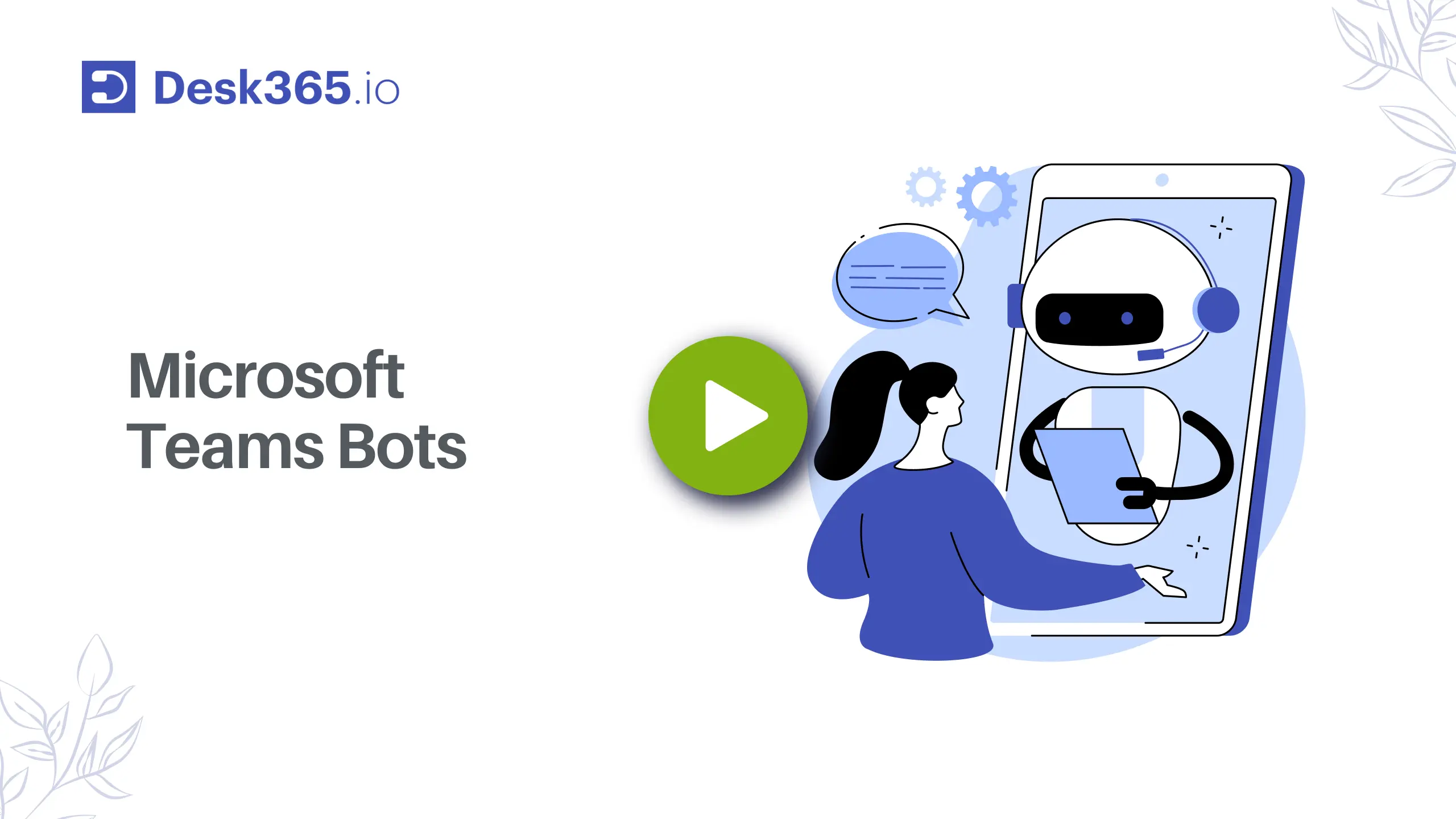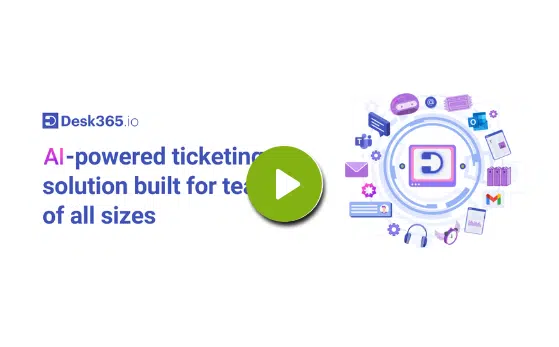We all know customer experience (CX) is everything these days. One bad interaction can ripple through your reputation, which is why 90% of businesses keep CX as a top priority. And while a great product matters, your customer-facing teams, the folks answering calls, responding to emails, and solving problems play a huge role too.
What’s B2B customer service?
Let’s start simple. B2B, or business-to-business, means your product or service is sold to other companies, not individual consumers. For example, imagine a company using Slack for internal communication. The IT team might need help setting up integrations, HR might need guidance on managing groups, and the finance team might have billing questions. That’s B2B in action, multiple departments relying on your product, all at the same time.
Because of this, B2B support can get complex. You’re not just answering one person, you’re coordinating across teams, dealing with different priorities, and making sure SLAs (service level agreements) are met so businesses can keep running smoothly.
B2B vs B2C customer service: Why it’s different?
When you’re supporting B2C customers, it usually comes down to one person making a purchase and needing help with it. B2B, on the other hand, is a completely different ballgame, because now you’re dealing with entire organizations that rely on your product to keep their own businesses running.
Think about Spotify, if I’m a listener and I can’t log in, the impact is frustrating but limited to just me.
Now compare that to B2B. Say your company uses Slack as the central communication hub. If something goes down or an integration breaks, it’s not just one person stuck, it’s hundreds (or even thousands) of employees who can’t communicate effectively. That’s an entire business operation at risk.
That difference changes everything:
- Instead of talking to a single user, you’ll often interact with multiple teams within one company such as IT, operations, finance, and more, each with their own needs and expectations.
- The issues are usually more complex, since the product is deeply tied into workflows, integrations, and day-to-day operations.
- Relationships aren’t one-and-done transactions. They’re long-term partnerships, where reliability, consistency, and trust matter just as much as the product itself.
- And here’s the big one: even a small glitch on your side can have ripple effects on your customer’s business.
That’s why B2B customer service is frequently 24/7—it has to be responsive, proactive, and always ready to step in.
Challenges in B2B customer service
Supporting businesses isn’t the same as supporting individual consumers. In B2B, the stakes are higher, the relationships more complex, and the margin for error much smaller. Here are some of the biggest challenges customer service teams face:
- Complex stakeholder involvement: You’re not just talking to one customer; you’re often supporting multiple departments inside a client organization. IT might need technical fixes, HR might need help with onboarding, and Finance might be chasing billing clarifications. Each has different priorities, and it’s your job to juggle them without letting anything slip.
- Extended sales and onboarding cycles: From the moment a lead turns into a customer, there’s already been a long journey of demos, approvals, compliance checks, and contract negotiations. If support falters during this phase, trust can unravel before the partnership even takes off.
- High stakes, high impact: In B2B, your product isn’t just a “nice-to-have.” It’s often mission-critical to daily operations. A small downtime or a delay in response can directly affect your client’s ability to serve their own customers, creating a ripple effect of frustration and financial loss.
- Customization and integration needs: Unlike B2C tools, B2B solutions usually integrate with other systems, CRMs, or communication platforms. That means issues can get tricky fast, requiring service teams to have both product expertise and a working knowledge of external tools.
- Long-term relationship management: B2B customers aren’t making one-time purchases. They’re entering into partnerships that last years. That means expectations for consistency, transparency, and personalized service are sky-high.
- Pressure of SLAs and compliance: Many B2B contracts include strict Service Level Agreements (SLAs) around response times, uptime, and resolution. Breaching these can damage relationships or even lead to financial penalties.
- Expectation for proactive service: B2B clients expect you to anticipate issues, not just react to them. If there’s a risk of downtime, they want to know before it hits, not after. Proactive communication is just as important as reactive troubleshooting.
- Scalability challenges: As your client’s business grows, their support needs multiply. Your customer service team has to be ready to scale alongside them without sacrificing quality.
All of this underscores one thing: B2B customer service requires more than just quick replies. It demands a team that’s knowledgeable, proactive, empathetic, and equipped with the right tools to manage complexity at scale.
How Desk365 helps B2B teams win?
This is where Desk365 shines. Built for modern, lean support teams, it balances simplicity and power so businesses can manage complex relationships while staying agile.
- Unified support across channels – All tickets from email, Teams, web forms, or a help widget flow into one clean inbox.
- Native Microsoft Teams integration – Employees can create, track, and reply to tickets without leaving Teams.
- Knowledge base + self-service – Publish and organize FAQs so customers find answers instantly, reducing repetitive queries.
- SLA management – Set response/resolution targets by priority. Automated alerts help you stay compliant.
- Custom workflows & automations – Auto-assign, route, or escalate tickets, saving agents from repetitive tasks.
- Collaboration tools – Share tickets with managers or cross-department stakeholders to keep everyone aligned.
- Advanced reporting & analytics – Export granular time data, monitor SLA performance, and share insights with clients.
- Scalable design – Customizable views, bulk actions, and automation let you grow ticket volume without ballooning headcount.
“We’ve seen customers double their ticket volume after scaling their business, but they didn’t need to double their support staff. Desk365’s automations make that possible,” says Nishanth Sivakumar, Desk365’s Customer Success Specialist.
Best practices for B2B customer service
To excel in B2B customer service, consider the following best practices:
- Personalized onboarding: Tailor the onboarding process to the specific needs and workflows of each client, ensuring a smooth transition and adoption of your product or service.
- Proactive communication: Regularly check in with clients to address potential issues before they escalate, demonstrating a commitment to their success.
- Comprehensive training: Equip your support team with in-depth knowledge of both your product and the client’s industry to provide informed and relevant assistance.
- Feedback loops: Establish mechanisms to gather client feedback, using it to refine processes and improve service delivery continuously.
- Performance metrics: Monitor key performance indicators (KPIs) such as First Response Time (FRT), Resolution Time, and Customer Satisfaction Score (CSAT) to assess and enhance service quality.
In the realm of B2B, good customer service is not just about resolving issues; it’s about building partnerships that drive mutual success. By understanding the unique challenges and needs of your clients and leveraging tools like Desk365, you can deliver service that not only meets but exceeds expectations.
For a deeper dive into optimizing your customer service operations, explore our free trial today and experience firsthand how our platform can transform your support operations.







